#luxury goods
Photo






1939 Mercedes-Benz 540K Special Roadster
#1939 Mercedes-Benz 540K Special Roadster#Mercedes-Benz#MB#automobile#car#supercar#sports car#german sports car#roadster#luxury#luxury goods#luxury car#luxury living#luxury lifestyle#billionaire#billionaire lifestyle#rich#expensive#$$$#blue#1930s#1930s style
4K notes
·
View notes
Text
By: Rob Henderson
Published: Jun 12, 2022
Let’s start with a question: What do top hats and “defund the police” have in common?

Before we explore it, I’ll very briefly tell you about my unusual background.
Currently, I’m a doctoral candidate in psychology at Cambridge and a faculty fellow at the University of Austin. And before this, I studied psychology at Yale as an undergraduate.
But before entering these universities, my life was a lot different.
I was born into poverty and grew up in foster homes in Los Angeles and all around California. I fled as soon as I could at age 17, enlisting in the military right after high school.

I then attended Yale on the GI Bill. That was a very different environment for me.
At Yale, there are more students from families in the top 1 percent of the income scale than from the entire bottom 60 percent.

Throughout my experiences traveling along the class ladder, I made a discovery:
Luxury beliefs have, to a large extent, replaced luxury goods.
Luxury beliefs are ideas and opinions that confer status on the upper class, while often inflicting costs on the lower classes.
In 1899, the economist and sociologist Thorstein Veblen published a book called The Theory of the Leisure Class.
Drawing on observations about social class in the late nineteenth century, Veblen’s key idea is that because we can’t be certain about the financial status of other people, a good way to size up their means is to see whether they can afford expensive goods and leisurely activities.
This explains why status symbols are so difficult to obtain and costly to purchase.
In Veblen’s day, people exhibited their status with delicate and restrictive clothing like tuxedos, top hats, and evening gowns, or by partaking in time-consuming activities like golf or beagling.
These goods and leisurely activities could only be purchased or performed by people who did not work as manual laborers and could spend their time and money learning something with no practical utility.
Veblen even goes so far as to say, “The chief use of servants is the evidence they afford of the master’s ability to pay.” For Veblen, butlers are status symbols, too.

In short, his idea was about how economic capital was often converted into cultural capital.
These findings were later echoed by the renowned French sociologist Pierre Bourdieu in his 1979 book Distinction: A Social Critique of the Judgment of Taste.
In his body of work, Bourdieu described how “distance from necessity” characterized the affluent classes. In fact, Bourdieu coined the term “cultural capital.”
Once our basic physical and material needs are met, people can then spend more time cultivating what Bourdieu called the “dispositions of mind and body” in the form of intricate and expensive tastes and habits that the upper classes use to obtain distinction.

Corresponding with these sociological observations, the biologist Amotz Zahavi proposed that animals evolve certain displays, traits, and behaviors because they are so physically costly.
Many people are familiar with the example of the peacock’s tail. Only a healthy bird is capable of growing such plumage while managing to evade predators.
A lesser known example is the behavior of the African gazelle.
When these animals spot a predator, the healthy adult gazelles often engage in what is called “stotting.” They repeatedly jump as high as they can, springing vertically into the air with all four feet raised.

The signal this sends to predators is essentially: “I’m so fit that I can afford to expend valuable energy to show you how strong and robust I am compared with the other gazelles.” The predators then direct their attention to less lively and energetic targets.
So for humans, top hats and designer handbags are costly signals of economic capacities; for gazelles, stotting is a costly signal of physical capacities.
Veblen, Bourdieu and Zahavi all claimed that humans—or animals—flaunt certain symbols, communicate in specific ways, and adopt costly means of expressing themselves, in order to obtain distinction from the masses.
Animals do this physically.
And affluent humans often do it economically and culturally, with their status symbols.
A difference, though, is that human signals often trickle to the rest of society, which weakens the power of the signal. Once a signal is adopted by the masses, the affluent abandon it.
There are historical examples of this.
For example, in the middle ages, spices were expensive and only the elites could afford them. It was a hard-to-fake signal of one’s social rank and economic resources.
But as Europeans colonized India and the Americas, the cost of spices dropped, and the masses were now able to obtain them.
As a result of widespread use, spices were no longer a status symbol.

Elites decided they were vulgar, and during the reign of France’s Louis XIV, court chefs banned sugar and spice from all meals except for desserts.
Here’s another example.
In the U.S., dueling was practiced primarily by the elite for many years.
One key reason why it fell out of fashion in the early nineteenth century is because this ritual of dueling was gradually adopted by the lower classes.
In response, the upper classes abandoned it because it was no longer prestigious. And then it was outlawed in the late nineteenth century.

The yearning for distinction is the key motive here.
And in order to convert economic capital into cultural capital, it must be publicly visible.
But distinction encompasses not only clothing or food or rituals. It also extends to ideas and beliefs and causes.
In his book WASPS: The Splendors and Miseries of an American Aristocracy, the author Michael Knox Beran examined the lives and habits of upper-class Americans from the mid-nineteenth to the mid-twentieth century.
He writes that “WASPS” had mixed feelings about their fellow citizens.

These upper-crust Americans viewed ordinary Americans as “sunk in moronic darkness” and that “It is a question whether a high WASP ever supported a fashionable cause without some secret knowledge that the cause was abhorred by the vulgarians.”
This still goes on today.
In the past, people displayed their membership in the upper class with their material accoutrements.
But today, because material goods have become a noisier signal of one’s social position and economic resources, the affluent have decoupled social status from goods, and re-attached it to beliefs.
The upper class craves distinction.
The French sociologist Émile Durkheim understood this when he wrote, “The more one has, the more one wants, since satisfactions received only stimulate instead of filling needs.”
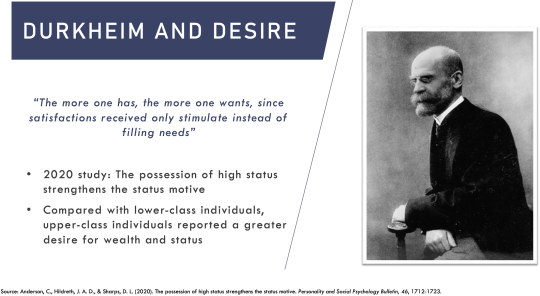
And this is backed by recent research.
A 2020 study titled “The possession of high status strengthens the status motive” led by Cameron Anderson at UC Berkeley found that relative to lower-class individuals, upper-class individuals have a greater desire for wealth and status.
In other words, high-status people desire wealth and status more than anyone else.
By now you probably know the answer to the question I asked at the beginning: what do top hats have in common with defunding the police.
Well, who was the most likely to support the fashionable defund the police cause in 2020 and 2021?
A survey from YouGov found that Americans in the highest income category were by far the most supportive of defunding the police.

They can afford to hold this position, because they already live in safe, often gated communities. And they can afford to hire private security.
In the same way that a vulnerable gazelle can’t afford to engage in stotting because it would put them in increased danger, a vulnerable poor person in a crime-ridden neighborhood can’t afford to support defunding the police.
According to the U.S. Census Bureau, compared to Americans who earn more than $75,000 a year, the poorest Americans are seven times more likely to be victims of robbery, seven times more likely to be victims of aggravated assault, and twenty times more likely to be victims of sexual assault.
Expressing a luxury belief is a manifestation of cultural capital, a signal of one’s fortunate economic circumstances.
There are other examples of luxury beliefs as well, such as the downplaying of individual agency in shaping life outcomes.
A 2019 study led by Joseph Daniels at Marquette University was published in the journal of Applied Economics Letters.

They found that individuals with higher income or a higher social status were the most likely to say that success results from luck and connections rather than hard work, while low-income individuals were more likely to say success comes from hard work and individual effort.
Well, which belief is more likely to be true?
Plenty of research indicates that compared with an external locus of control, an internal locus of control is associated with better academic, economic, health, and relationship outcomes. Believing you are responsible for your life’s direction rather than external forces appears to be beneficial.
Here’s the late Stanford psychology professor Albert Bandura. His vast body of research showed that belief in personal agency, or what he described as “self-efficacy,” has powerful positive effects on life outcomes.

Undermining self-efficacy will have little effect on the rich and educated, but will have pronounced effects for the less fortunate.
It’s also generally instructive to see what affluent people tell their kids. And what seems to happen is that affluent people often broadcast how they owe their success to luck. But then they tell their own children about the importance of hard work and individual effort.
Now let’s discuss strange vocabulary.
When I was growing up in foster homes, or making minimum wage as a dishwasher, or serving in the military, I never heard words like “cultural appropriation” or “gendered” or “heteronormative.”

Working class people could not tell you what these terms mean. But if you visit an elite university, you’ll find plenty of affluent people who will eagerly explain them to you.
When people express unusual beliefs that are at odds with conventional opinion, like defunding the police or downplaying hard work, or using peculiar vocabulary, often what they are really saying is, “I was educated at a top university” or “I have the means and time to acquire these esoteric ideas.”
Only the affluent can learn these things because ordinary people have real problems to worry about.
To this extent, Pierre Bourdieu in The Forms of Capital wrote, “The best measure of cultural capital is undoubtedly the amount of time devoted to acquiring it.”
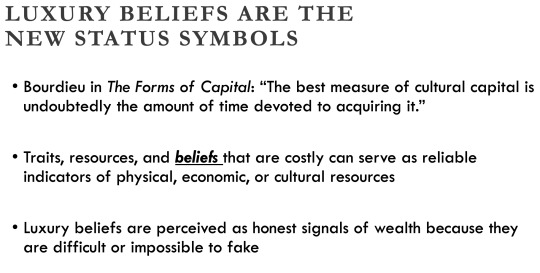
The chief purpose of luxury beliefs is to indicate evidence of the believer’s social class and education.
Members of the luxury belief class promote these ideas because it advances their social standing and because they know that the adoption of these policies or beliefs will cost them less than others.
Advocating for defunding the police or promoting the belief we are not responsible for our actions are good ways of advertising membership of the elite.
Why are affluent people more susceptible to luxury beliefs? They can afford it. And they care the most about status.
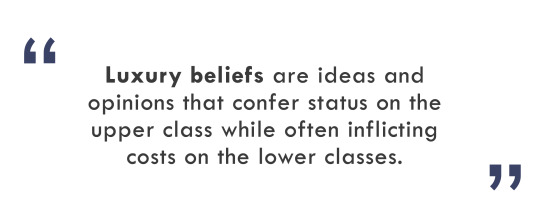
In short, luxury beliefs are the new status symbols.
They are honest indicators of one’s social position, one’s level of wealth, where one was educated, and how much leisure time they have to adopt these fashionable beliefs.
And just as many luxury goods often start with the rich but eventually become available to everyone, so it is with luxury beliefs.
But unlike luxury goods, luxury beliefs can have long term detrimental effects for the poor and working class. However costly these beliefs are for the rich, they often inflict even greater costs on everyone else.
#Rob Henderson#luxury beliefs#defund the police#status symbol#status seeking#virtue signal#virtue signalling#virtue signaling#psychology#human psychology#luxury goods#cultural capital#woke#wokeism#cult of woke#wokeness#wokeness as religion#religion is a mental illness
27 notes
·
View notes
Text

#chanel#logo#cc#coco chanel#black and white#luxury#designer#labels#label#luxury goods#designer goods#brand#brand name#branding#designer brand#designer brands#fashion house#fashion#iconic#legacy#timeless
15 notes
·
View notes
Text
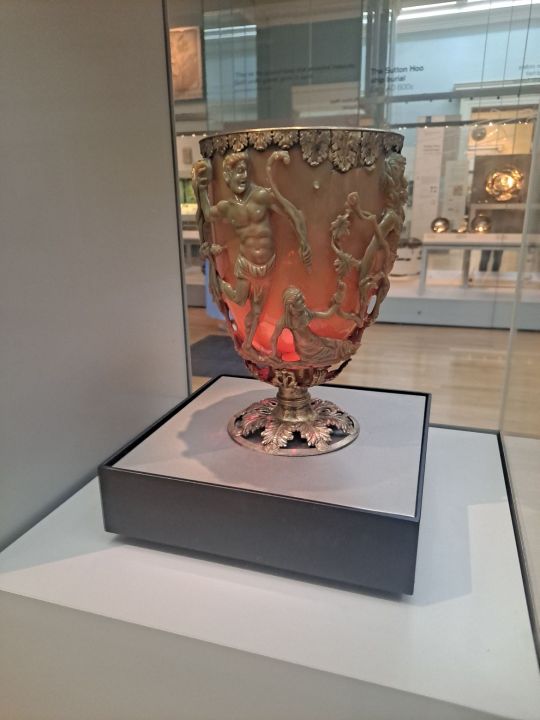
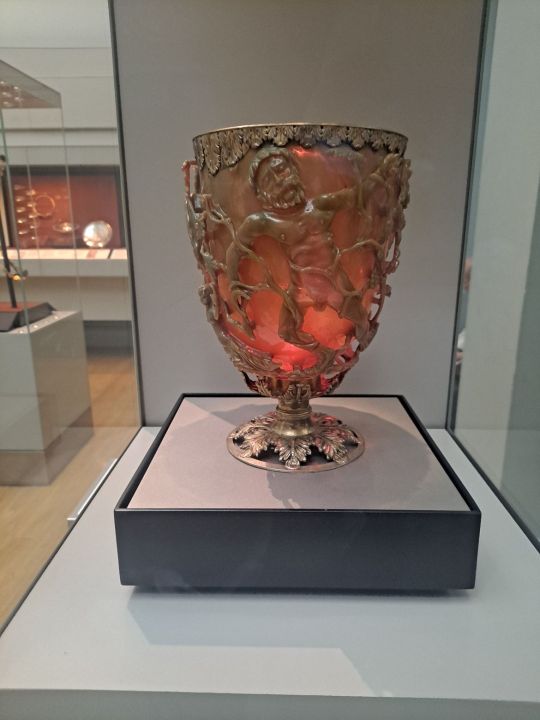
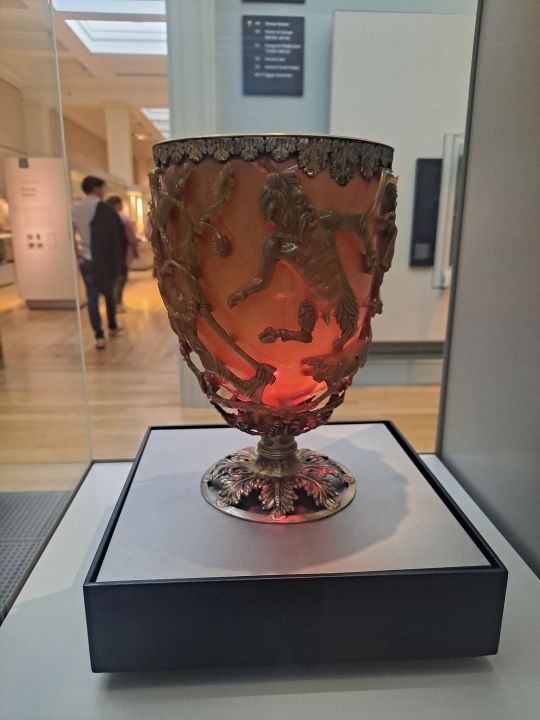

Lycurgus cup
* I was really happy to see this famous cup and this time it was red :)
* late 3rd / early 4th century CE
* silver, dichroic glass (changes colour depending on lighting conditions),
* Height: 15,88 cm, diameter 13,20 cm
* Weight: 700 grammes
* British Museum
* Wikipedia
London, June 2022
#Lycurgus cup#roman#wine cup#Roman#glassware#dicroich glass#cage cup#luxury goods#satyr#king Lycurgus#Ambrosia#cup#British Museum#my photo
183 notes
·
View notes
Text
Production focusing on status symbols and luxury goods, on advertising and branding, while ignoring use-value spells death in an age of climate crisis. There are so many vital issues to be addressed--guaranteeing universal access to food, water, electricity, shelter, and transportation; combating rising tides and flooding; protecting ecology; and so on. We must prioritize the production of things necessary to respond to the crisis, not things whose worth resides only in their capacity to produce value.
Slow Down by Kohei Saito
#quotes#21st century#nonfiction#kohei saito#slow down#use-value vs value#what is important#human needs#climate crisis#status symbol#luxury goods#environmental damage
3 notes
·
View notes
Text


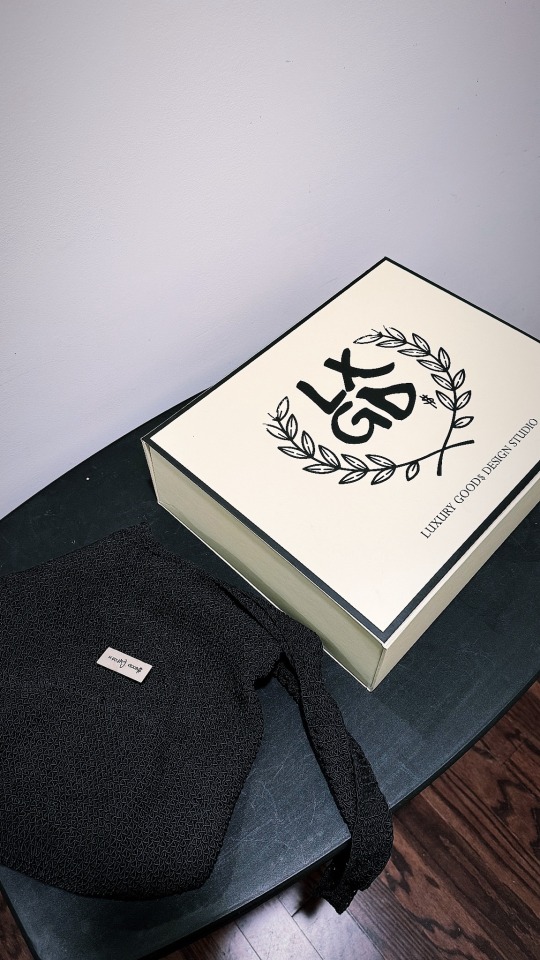
Working on the craft..
Good$$$$$$
3 notes
·
View notes
Text
Single women headed households as independent widows, deserted wives, single mothers and spinsters, earning their own livings, often on the breadline in rural communities, but sometimes very successful in towns: especially in luxury goods and retail business, lending small amounts of money to familiar faces – trusted creditors.
"Normal Women: 900 Years of Making History" - Philippa Gregory
#book quote#normal women#philippa gregory#nonfiction#single women#head of the household#independent#widow#deserted#wife#single mother#spinster#breadline#rural communities#towns#luxury goods#retail#moneylending#creditors#trusted
2 notes
·
View notes
Text
Because I mentioned some of the things that my abuser made me buy for her in this blog, Tumblr now advertises stupid watches and bags to me constantly.
2 notes
·
View notes
Text
himemiya 🤍
#Princess sickness#japan#luxury lifestyle#my upload#tokyo#pink#pearl#velvet#pink velvet#penthouse party#pink pilates princess#princesscore#prada odette heart bag#luxury goods#hot girl shit#lhdc#pink Prada#living in Japan#black in japan#new years eve#New Years party#art party#I’m really running away with these tags but they’re applicable lmao#coquette#winter#black girl luxury#glamour#glamorous#glamourous
15 notes
·
View notes
Text

@mudmadevulture 🦅||
#art#generationalwealth#mansorus#mental health awareness#philly#a man and his watch#luxury goods#luxury watch market#audemarspiguet
11 notes
·
View notes
Photo












1986 BMW Alpina B7 Turbo Coupe/1
#BMW#1986 BMW Alpina B7 Turbo Coupe/1#automobile#car#supercar#sports car#german sports car#luxury#luxury goods#luxury car#luxury living#luxury lifestyle#billionaire#billionaire lifestyle#rich#expensive#$$$#grey
1K notes
·
View notes
Text
https://www.wsj.com/us-news/education/luxury-beliefs-that-only-the-privileged-can-afford-7f6b8a16
‘Luxury Beliefs’ That Only the Privileged Can Afford

By: Rob Henderson
Published: Feb 9, 2024
In the same way that you don’t notice the specifics of your own culture until you travel elsewhere, you don’t really notice your social class until you enter another one. As an undergraduate at Yale a decade ago, I came to see that my peers had experienced a totally different social reality than me. I had grown up poor, a biracial product of family dysfunction, foster care and military service. Suddenly ensconced in affluence at an elite university—more Yale students come from families in the top 1% of income than from the bottom 60%—I found myself thinking a lot about class divides and social hierarchies.
I’d thought that by entering a place like Yale, we were being given a privilege as well as a duty to improve the lives of those less fortunate than ourselves. Instead, I often found among my fellow students what I call “luxury beliefs”—ideas and opinions that confer status on the upper class but often inflict real costs on the lower classes. For example, a classmate told me “monogamy is kind of outdated” and not good for society. I asked her what her background was and if she planned to marry. She said she came from an affluent, stable, two-parent home—just like most of our classmates. She added that, yes, she personally planned to have a monogamous marriage, but quickly insisted that traditional families are old-fashioned and that society should “evolve” beyond them.
My classmate’s promotion of one ideal (“monogamy is outdated”) while living by another (“I plan to get married”) was echoed by other students in different ways. Some would, for instance, tell me about the admiration they had for the military, or how trade schools were just as respectable as college, or how college was not necessary to be successful. But when I asked them if they would encourage their own children to enlist or become a plumber or an electrician rather than apply to college, they would demur or change the subject.
In the past, people displayed their membership in the upper class with their material accouterments. As the economist and sociologist Thorstein Veblen famously observed in his 1899 book “The Theory of the Leisure Class,” status symbols must be difficult to obtain and costly to purchase. In Veblen’s day, people exhibited their status with delicate and restrictive clothing, such as top hats and evening gowns, or by partaking in time-consuming activities, such as golf or beagling. The value of these goods and activities, argued Veblen, was in the very fact that they were so pricey and wasteful that only the wealthy could afford them.
Today, when luxury goods are more accessible to ordinary people than ever before, the elite need other ways to broadcast their social position. This helps explain why so many are now decoupling class from material goods and attaching it to beliefs.
Take vocabulary. Your typical working-class American could not tell you what “heteronormative” or “cisgender” means. When someone uses the phrase “cultural appropriation,” what they are really saying is, “I was educated at a top college.” Only the affluent can afford to learn strange vocabulary. Ordinary people have real problems to worry about.
When my classmates at Yale talked about abolishing the police or decriminalizing drugs, they seemed unaware of the attending costs because they were largely insulated from them. Reflecting on my own experiences with alcohol, if drugs had been legal and easily accessible when I was 15, you wouldn’t be reading this. My birth mother succumbed to drug addiction soon after I was born. I haven’t seen her since I was a child. All my foster siblings’ parents were addicts or had a mental health condition, often triggered by drug use.
A well-heeled student at an elite university can experiment with cocaine and will probably be just fine. A kid from a dysfunctional home with absentee parents is more likely to ride that first hit of meth to self-destruction. This may explain why a 2019 survey conducted by the Cato Institute found that more than 60% of Americans with at least a bachelor’s degree were in favor of legalizing drugs, while less than half of Americans without a college degree thought it was a good idea. Drugs may be a recreational pastime for the rich, but for the poor they are often a gateway to further pain.
Similarly, a 2020 Yahoo News/YouGov survey found that the richest Americans showed the strongest support for defunding the police, while the poorest Americans reported the lowest support. Consider that compared with Americans who earn more than $50,000 a year, the poorest Americans are three times more likely to be victims of robbery, aggravated assault and sexual assault, according to federal statistics. Yet it’s affluent people who are calling to abolish law enforcement. Perhaps the luxury belief class is simply ignorant of the realities of crime.
Most personal to me is the luxury belief that family is unimportant or that children are equally likely to thrive in all family structures. In 1960, the percentage of American children living with both biological parents was identical for affluent and working-class families—95%. By 2005, 85% of affluent families were still intact, but for working-class families the figure had plummeted to 30%. As the Harvard political scientist Robert Putnam stated at a 2017 Senate hearing: “Rich kids and poor kids now grow up in separate Americas.”
In 2006, more than half of American adults without a college degree believed it was “very important” that couples with children should be married, according to Gallup. Fast-forward to 2020, and this number had plummeted to 31%. Among college graduates polled by Gallup, only 25% thought couples should be married before having kids. Their actions, though, contradict their luxury beliefs: Most American college graduates who have children are married. Despite their behavior, affluent people are the most likely to say marriage is unimportant. Their message has spread.
I noticed that many Yale students selectively concealed their opinions or facts about their lives. More than one quietly confessed to me that they were pretending to be poorer than they really were, because they didn’t want the stigma of being thought rich. Why would this stigma exist at a rich university full of rich students? It’s a class thing. For the upper class, indicating your social position by speaking about money is vulgar. Sharing your educational credentials is a classier shorthand, but broadcasting your seemingly altruistic and socially conscientious luxury beliefs is the best of all.
It is harder for wealthy people to claim the mantle of victimhood, which, among the affluent, is often a key ingredient of righteousness. Researchers at Harvard Business School and Northwestern University recently found evidence of a “virtuous victim” effect, in which victims are seen as more moral than nonvictims who behave in exactly the same way: If people think you have suffered, they will be more likely to excuse your behavior. Perhaps this is why prestigious universities encourage students to nurture their grievances. The peculiar effect is that many of the most advantaged people are the most adept at conveying their disadvantages.
Occasionally, I raised these critiques with fellow students or graduates of elite colleges. Sometimes they would reply by asking, “Well, aren’t you part of this group now?” implying that my appraisals were hollow because I moved within the same milieu. But they wouldn’t have listened to me back when I was a lowly enlisted man in the military or when I was washing dishes for minimum wage. If you ridicule the upper class as an outsider, they’ll ignore you. The requirements for the upper class to take you seriously—credentials, wealth, power—are also the grounds to brand you a hypocrite for daring to judge.
But negative social judgments often serve as guardrails to deter detrimental decisions that lead to unhappiness. To avoid misery, I believe we have to admit that certain actions and choices, including single parenthood, substance abuse and crime, are actually in and of themselves undesirable and not simply in need of normalization. Indeed, it’s cruel to validate decisions that inflict harm. And it’s a true luxury to be ignorant of these consequences.
Rob Henderson is the author of “Troubled: A Memoir of Foster Care, Family, and Social Class,” which will be published on Feb. 20 by Gallery Books.
[ Via: https://archive.is/IkhkK ]
#Rob Henderson#luxury beliefs#leisure class#elite class#monogamy#virtuous victim#victimhood culture#victimhood#Similarly#defund the police#abolish the police#luxury goods#elite colleges#elite universities#privilege#religion is a mental illness
6 notes
·
View notes
Text

#rodeo drive#rodeo#LV#cc#Chanel#Louis Vuitton#shopping#shopping bags#beverly hills#los angeles#LA#California#luxury#luxury goods#expensive#bulgari#bvlgari#goyard
11 notes
·
View notes
Text

Luxury goods - Barber Cup and Crawford Cup
* Roman
* About 50-100 CE
* Findspot: Cilicia, Turkey
* Fluorspar
* British Museum
London, July 2022
#Barber cup#Crawford cup#luxury goods#Roman#fluorite#goblet#chalice#tableware#ancient#Cilicia#British Museum#my photo
30 notes
·
View notes
Text
Non-Fungible Tokens (NFTs): A Revolution in the Digital World
Hey friends! 🌟 Check out this fascinating blog on the revolutionary world of #NFTs! Discover how they're transforming digital ownership and what the future holds for #Blockchain, #DigitalArt, #VirtualRealms, and more! 🚀 #TechRevolution #DigitalAssets
In recent years, Non-Fungible Tokens (NFTs) have taken the digital world by storm, redefining how we perceive ownership, art, and collectibles. These unique cryptographic tokens have transformed the way we interact with digital assets, offering exciting opportunities for creators, investors, and enthusiasts alike. In this blog, we’ll delve into the world of NFTs, exploring their usage,…

View On WordPress
#Augmented Reality#Blockchain#Certifications#Collectibles#Copyright Management#Digital Art#digital identity#environmental impact#Fan Engagement#Fashion#Fractional Ownership#Gaming#Intellectual Property Rights#Interoperability#Luxury Goods#Mainstream Adoption#Metaverses#Music#NFTs#non-fungible tokens#Real-World Asset Tokenization#Royalties#Social Tokens#Sustainability#Tokenized World#Virtual Real Estate#virtual reality#Virtual Realms
3 notes
·
View notes